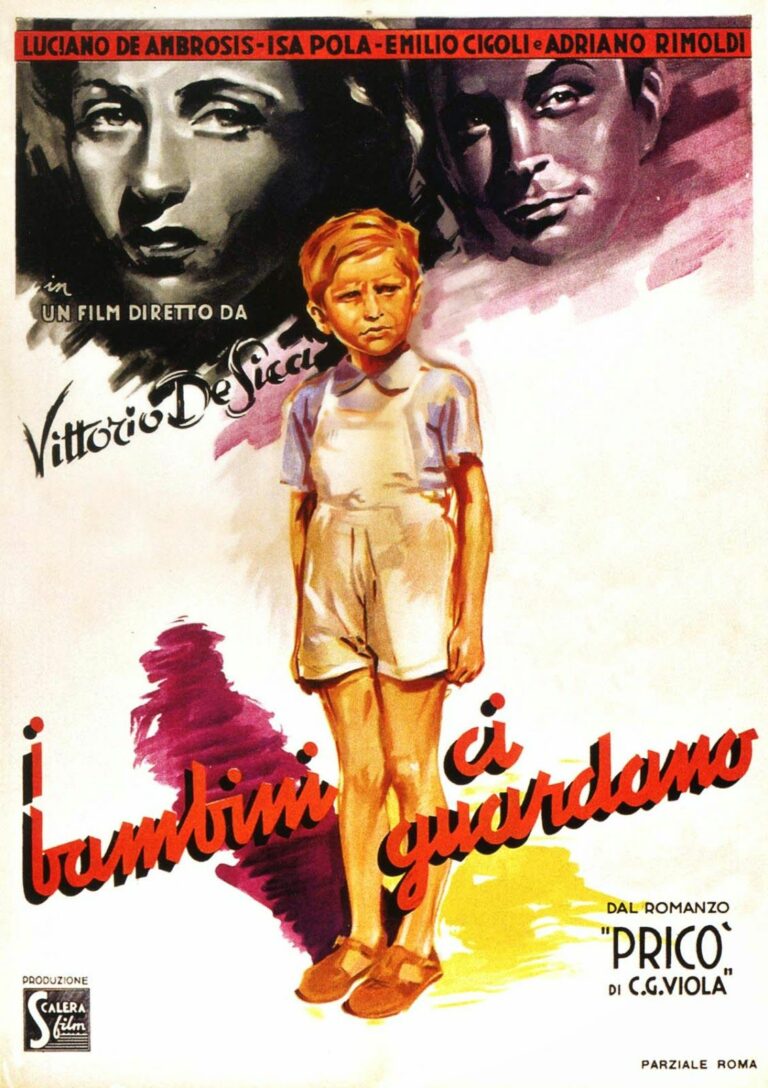
1. Introduction
Senso (1954) is an Italian historical melodrama directed by the renowned filmmaker Luchino Visconti. Set against the backdrop of Italy’s Risorgimento, or unification movement, the film explores themes of love, betrayal, patriotism, and moral corruption. Known for its visual splendor and deeply emotional narrative, Senso stands as a towering achievement in the realm of historical cinema.
Visconti, a pioneer of Italian neorealism, shifted gears with Senso to create an opulent, operatic work that combines realism with grandiosity. Based on Camillo Boito’s novella, the film weaves together the personal and the political, offering a timeless tale of human weakness set amidst the tumult of history.
2. Plot Summary
Setting and Timeframe
Senso unfolds in 1866, during the Third Italian War of Independence. The story begins in Venice, under Austrian occupation, and moves across Northern Italy as the events escalate.
Main Characters and Their Roles
The narrative centers on Countess Livia Serpieri (played by Alida Valli), an aristocratic woman married to a wealthy Venetian nobleman, and Lieutenant Franz Mahler (Farley Granger), an Austrian officer. Their torrid love affair becomes the fulcrum of a larger conflict, mirroring Italy’s political struggles.
Major Story Arcs and Themes
The film opens with a pro-Italian protest in an opera house, an event that introduces the tension between personal desires and nationalistic fervor. Livia, caught between her sense of duty and her infatuation with Franz, betrays both her family and her ideals in pursuit of love. The relationship deteriorates as Franz’s selfishness and cowardice come to light, culminating in a tragic and devastating conclusion.
3. Background and Historical Context
Adaptation of Camillo Boito’s Novella
Senso is adapted from Camillo Boito’s 1882 novella of the same name, though Visconti took creative liberties to enhance its cinematic appeal. While the novella is a concise exploration of moral decay, the film expands the narrative to include Italy’s unification struggle.
Historical Setting: The Italian Unification
The Risorgimento serves as a powerful backdrop for the story. The film reflects the social and political upheaval of the era, with the Austrian occupation symbolizing the oppressive forces that Livia must contend with on both a personal and societal level.
Visconti’s Interpretation of History
Visconti, a Marxist and aristocrat, imbues the film with his unique perspective. His critique of the aristocracy, combined with his appreciation for historical detail, results in a layered portrayal of 19th-century Italy.
4. Themes Explored in Senso
Love and Betrayal
The central relationship between Livia and Franz exemplifies the destructive power of unchecked passion. Their love is marked by deceit and selfishness, leading to mutual ruin.
Patriotism vs. Personal Desire
Livia’s betrayal of the Italian resistance highlights the tension between personal desires and national duty. This theme resonates deeply within the historical context of Italy’s fight for independence.
Decadence and Morality
The film critiques the decadence of the aristocracy, portraying Livia as a symbol of moral decline. Her actions reflect the larger societal decay that Visconti sought to expose.
5. Character Analysis
Countess Livia Serpieri: A Tragic Heroine
Livia is a complex character, torn between her love for Franz and her loyalty to her country. Her descent into despair and betrayal makes her one of cinema’s most compelling tragic figures.
Lieutenant Franz Mahler: The Ambitious Anti-Hero
Franz, in contrast, is a manipulative and opportunistic character. His cold pragmatism stands in stark opposition to Livia’s emotional vulnerability.
Supporting Cast and Their Importance
Characters such as Livia’s husband and her cousin Roberto (a fervent nationalist) provide additional layers to the narrative, representing the forces that pull Livia in opposing directions.
6. Cinematic Techniques
Use of Cinematography and Visual Composition
Visconti’s meticulous attention to detail is evident in the film’s sumptuous visuals. Cinematographer G.R. Aldo captures the grandeur of 19th-century Italy, using light and shadow to evoke emotional depth.
Costumes and Set Design: Evoking 19th Century Italy
The film’s lavish costumes and authentic sets transport viewers to the era of the Risorgimento, showcasing Visconti’s commitment to historical accuracy.
Score by Anton Bruckner: Enhancing the Emotional Depth
The use of Bruckner’s music underscores the film’s operatic quality, heightening the emotional intensity of key scenes.
7. Comparison to the Novella
Visconti’s Senso diverges from Boito’s novella in significant ways. The film adds historical context, expands character backstories, and transforms the novella’s introspective tone into a sweeping, visual spectacle.
8. Reception and Criticism
Upon its release, Senso received mixed reviews. While critics praised its visuals and performances, some were divided over its melodramatic tone. Over time, however, the film has been reassessed as a masterpiece of Italian cinema.
9. Legacy of Senso
Visconti’s Senso has left an indelible mark on world cinema. Its influence can be seen in subsequent historical dramas, and it remains a touchstone for filmmakers exploring the intersection of personal and political narratives.
10. Frequently Asked Questions (FAQs)
1. What is the significance of the title Senso?
The title refers to the Italian word for “sense” or “feeling,” reflecting the emotional turmoil of the characters.
2. How does Senso reflect Visconti’s ideology?
The film critiques the decadence of the aristocracy while exploring themes of personal and political betrayal.
3. What are the major themes in Senso?
Love, betrayal, patriotism, and moral decay are central themes in the film.
4. How historically accurate is the film?
While the film captures the essence of the Risorgimento, it takes creative liberties for dramatic effect.
5. Where can I watch Senso today?
Senso is available on various streaming platforms and in restored Blu-ray editions.
6. Why is Senso considered a masterpiece?
Its combination of visual opulence, emotional depth, and historical context makes it a standout work in cinematic history.
Conclusion
Senso is a timeless masterpiece that combines historical drama with deeply personal storytelling. Through its exploration of love, betrayal, and patriotism, the film remains a poignant reflection on the human condition. Visconti’s vision and craftsmanship ensure that Senso will continue to captivate audiences for generations to come.






